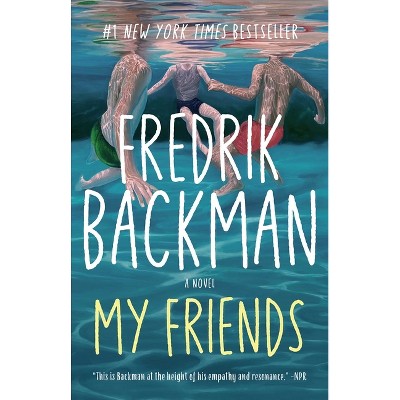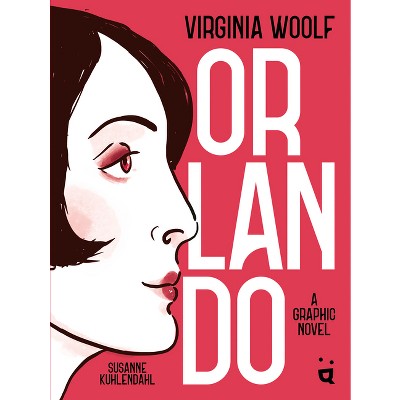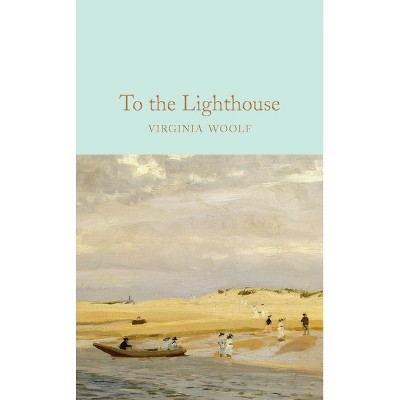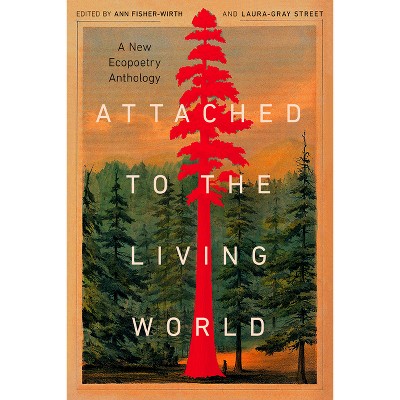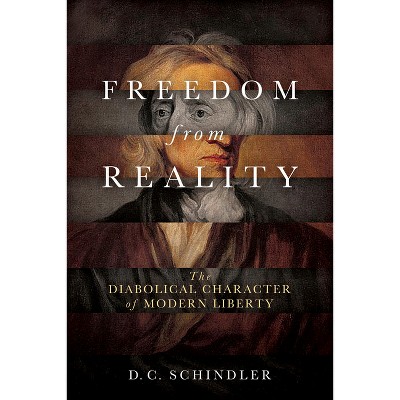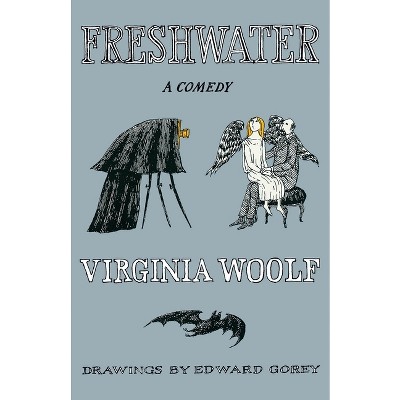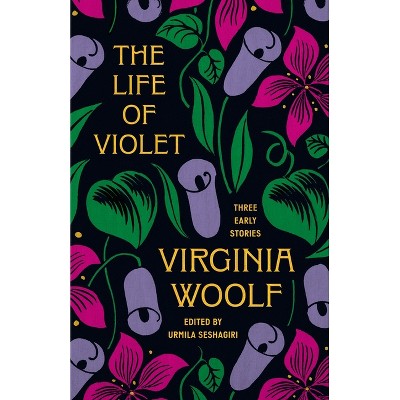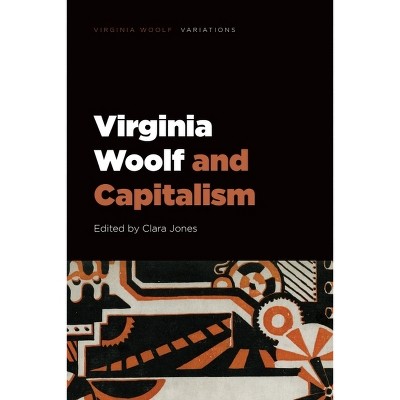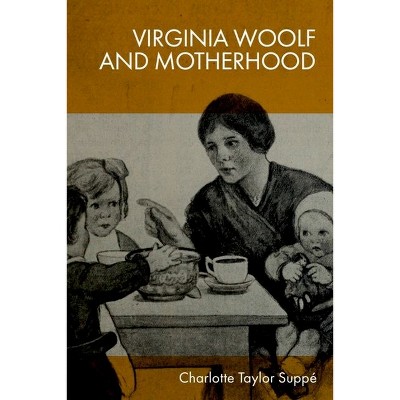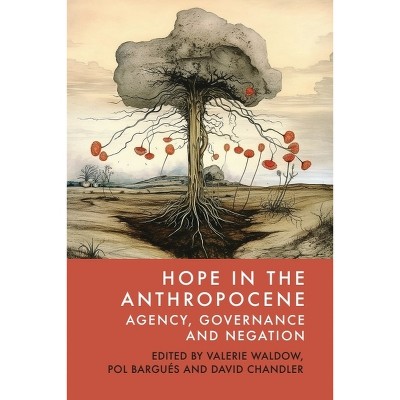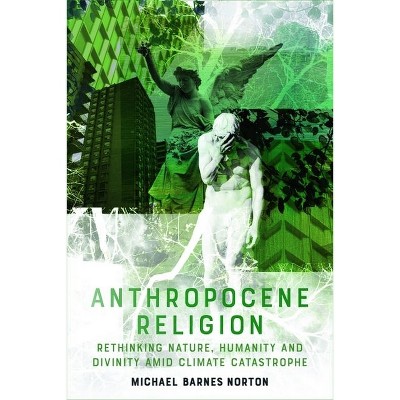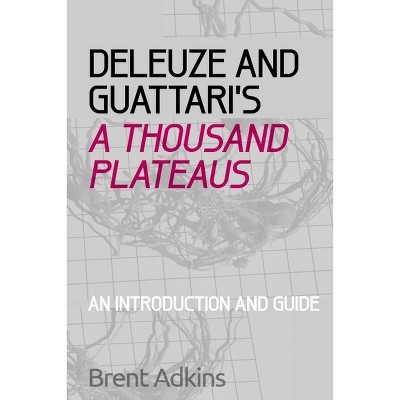Sponsored

Virginia Woolf and the Anthropocene - (Virginia Woolf - Variations) by Peter Adkins
In Stock
Sponsored
About this item
Highlights
- The first half of the twentieth century was a period of accelerated resource extraction, industrial intensification and tipping points in pollution levels, hastening the emergence of an epoch in which humans are the key drivers of planetary change.
- About the Author: Peter Adkins is Lecturer in Modernist Literature at the University of Edinburgh.
- 296 Pages
- Literary Criticism, Modern
- Series Name: Virginia Woolf - Variations
Description
About the Book
Explores how Virginia Woolf reimagined the environment and nonhuman life in her writingBook Synopsis
The first half of the twentieth century was a period of accelerated resource extraction, industrial intensification and tipping points in pollution levels, hastening the emergence of an epoch in which humans are the key drivers of planetary change. Virginia Woolf and the Anthropocene situates Woolf's oeuvre as an important body of work within the literary history of our new planetary period, showing how her fiction and non-fiction engages with questions around climate change, environmental politics, imperial extractivism, eco-philosophy, species difference, natural history and extinction. Bringing together leading and emergent scholars, this collection recognises Woolf as a writer who was profoundly influenced by ecological and environmental questions throughout her life. It brings to light how Woolf responded to the environmental changes of her time and illuminates how her literary innovations continue to offer compelling ways of imagining the nonhuman and the planetary in our present moment.From the Back Cover
[headline]Explores how Virginia Woolf reimagined the environment and nonhuman life in her writing The first half of the twentieth century was a period of accelerated resource extraction, industrial intensification and tipping points in pollution levels, hastening the emergence of an epoch in which humans are the key drivers of planetary change. Virginia Woolf and the Anthropocene situates Woolf's oeuvre as an important body of work within the literary history of our new planetary period, showing how her fiction and non-fiction engages with questions around climate change, environmental politics, imperial extractivism, eco-philosophy, species difference, natural history and extinction. Bringing together leading and emergent scholars, this collection recognises Woolf as a writer who was profoundly influenced by ecological and environmental questions throughout her life. It brings to light how Woolf responded to the environmental changes of her time and illuminates how her literary innovations continue to offer compelling ways of imagining the nonhuman and the planetary in our present moment. [bio]Peter Adkins is Lecturer in Modernist Literature at the University of Edinburgh. He is the author of The Modernist Anthropocene: Nonhuman Life and Planetary Change in James Joyce, Virginia Woolf and Djuna Barnes (2022) and co-editor of Virginia Woolf, Europe and Peace: Aesthetics and Theory (2020). He has written widely on modernism, the environment and posthumanism.Review Quotes
This collection... offers crucial insights especially for researchers interested in exploring the different realities and different modes of being in the world that animate Virginia Woolf's writing and resonate with the kind of rethinking required in the Anthropocene.--Dr. Shahira Hathout, York University "The Modernist Review"
These rich, intensive and impressive pieces of work force us to recognise how much more radical and prophetic Virginia Woolf's work really is than has been understood. This excellent collection explores how Woolf anticipated present concerns, setting humans against the planet's deep history and entangled within vast nonhuman forces that haunt our pretensions and threaten disaster.
--Louise Westling, University of OregonThis valuable collection assesses Woolf's potential to address the environmental crisis of the Anthropocene through her distinct feminist modernism. Essays from both veteran and more recent critics address useful angles, including climate change, extraction of resources, materialist visions of extinction, and new sources for interspecies, planetary communication and collaboration.
--Bonnie Kime Scott, San Diego State UniversityAbout the Author
Peter Adkins is Lecturer in Modernist Literature at the University of Edinburgh. He is the author of The Modernist Anthropocene: Nonhuman Life and Planetary Change in James Joyce, Virginia Woolf and Djuna Barnes (2022) and co-editor of Virginia Woolf, Europe and Peace: Aesthetics and Theory (2020). He has written widely on modernism, the environment and posthumanism.
Shipping details
Return details
Trending Book Pre-Orders




